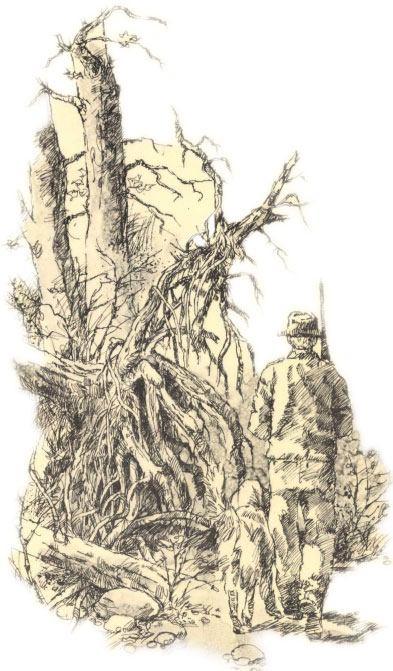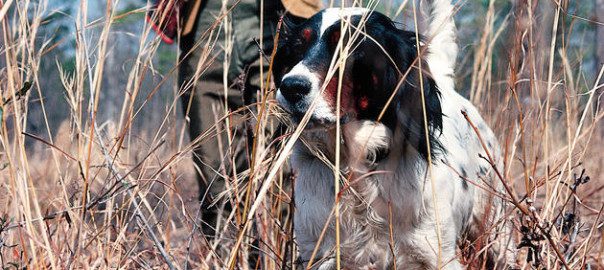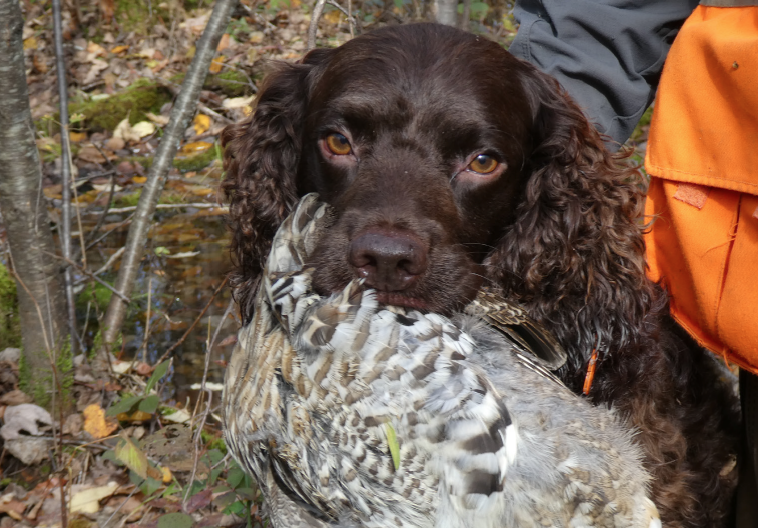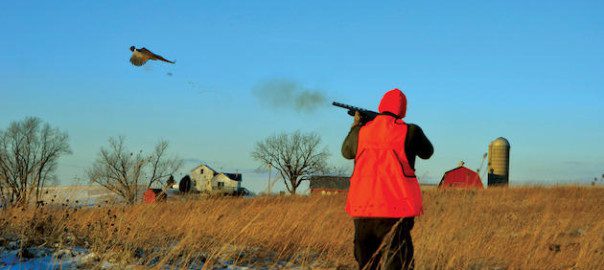He was going back to Tinkhamtown.
It was a long way, but he knew where he was going. He would follow the road through the woods and over the crest of a hill and down the hill to the stream, and cross the sagging timbers of the bridge, and on the other side would be the place called Tinkhamtown. He was going back to Tinkhamtown.
He walked slowly at first, his legs dragging with each step. He had not walked for almost a year, and his flanks had shriveled and wasted away from lying in bed so long; he could fit his fingers around his thigh. Doc Towle had said he would never walk again, but that was Doc for you, always on the pessimistic side. Why, now he was walking quite easily, once he had started. The strength was coming back into his legs, and he did not have to stop for breath so often. He tried jogging a few steps, just to show he could, but he slowed again because he had a long way to go.
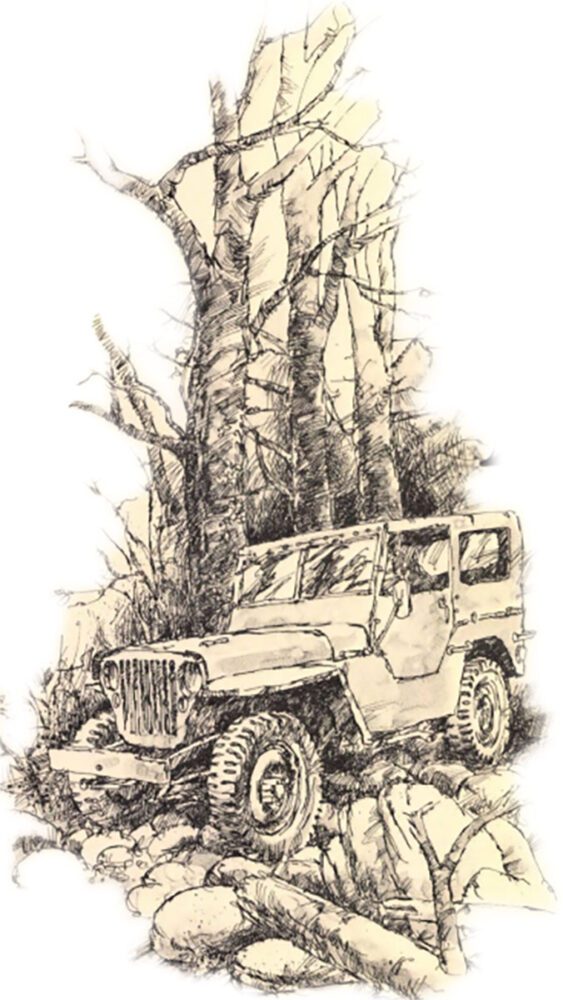 It was hard to make out the old road, choked with and covered by matted leaves, and he shut his eyes so he could see it better. He could always see it when he shut his eyes. Yes, here was the beaver dam on the right, just as he remembered it, and the flooded stretch where he had picked his way from hummock to hummock while the dog splashed unconcernedly in front of him. The water had been over his boot tops in one place, and sure enough, as he waded it now his left boot filled with water again, the same warm squdgy feeling. Everything was the way it had been that afternoon, nothing had changed in 10 years. Here was the blowdown across the road that he had clambered over, and here on a knoll was the clump of thomapples where a grouse had flushed as they passed. Shad had wanted to look for it, but he had whistled him back. They were looking for “Tinkhamtown.”
It was hard to make out the old road, choked with and covered by matted leaves, and he shut his eyes so he could see it better. He could always see it when he shut his eyes. Yes, here was the beaver dam on the right, just as he remembered it, and the flooded stretch where he had picked his way from hummock to hummock while the dog splashed unconcernedly in front of him. The water had been over his boot tops in one place, and sure enough, as he waded it now his left boot filled with water again, the same warm squdgy feeling. Everything was the way it had been that afternoon, nothing had changed in 10 years. Here was the blowdown across the road that he had clambered over, and here on a knoll was the clump of thomapples where a grouse had flushed as they passed. Shad had wanted to look for it, but he had whistled him back. They were looking for “Tinkhamtown.”
He had come across the name on a map in the town library. He used to study the old maps and survey charts of the state; sometimes they showed where a farming community had flourished, a century ago, and around the abandoned pastures and in the orchards grown up to pine the birds would be feeding undisturbed. Some of his best grouse covers had been located that way. The map had been rolled up in a cardboard cylinder; it crackled with age as he spread it out. The date was 1857. It was the sector between Cardigan and Kearsarge Mountains, a wasteland of slash and second growth timber without habitation today, but evidently it had supported a number of families before the Civil War. A road was marked on the map, dotted with X’s for homesteads, and the names of the owners were lettered beside them: Nason, J. Tinkham, Allard, R. Tinkham. Half the names were Tinkham. In the center of the map — the paper was so yellow that he could barely make it out — was the word” Tinkhamtown.”
He had drawn a rough sketch on the back of an envelope, noting where the road left the highway and ran north to a fork and then turned east and crossed a stream that was not even named; and the next morning he and Shad had set out together to find the place. They could not drive very far in the jeep, because washouts had gutted the roadbed and laid bare the ledges and boulders. He had stuffed the sketch in his hunting-coat pocket, and hung his shotgun over his forearm and started walking, the setter trotting ahead with the bell on his collar tinkling. It was an old-fashioned sleighbell, and it had a thin silvery note that echoed through the woods like peepers in the spring. He could follow the sound in the thickest cover, and when it stopped he would go to where he heard it last and Shad would be on point. After Shad’s death, he had put the bell away. He’d never had another dog.
It was silent in the woods without the bell, and the way was longer than he remembered. He should have come to the big hill by now. Maybe he’d taken the wrong turn back at the fork. He thrust a hand into his hunting coat; the envelope with the sketch was still in the pocket. He sat down on a flat rock to get his bearings, and then he realized, with a surge of excitement, that he had stopped on this very rock for lunch 10 years ago. Here was the waxed paper from his sandwich, tucked in a crevice, and here was the hollow in the leaves where Shad had stretched out beside him, the dog’s soft muzzle flattened on his thigh. He looked up, and through the trees he could see the hill.
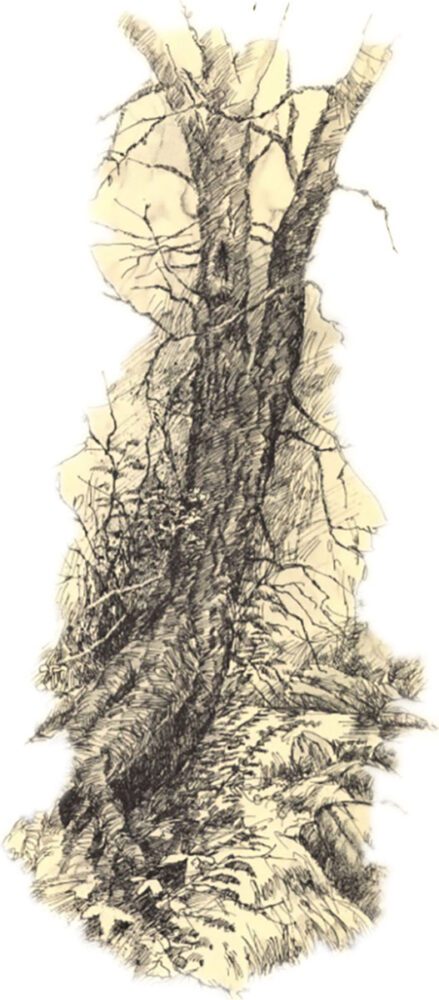 He rose and started walking again, carrying his shotgun. He had left the gun standing in its rack in the kitchen when he had been taken to the state hospital, but now it was hooked over his arm by his trigger guard; he could feel the solid heft of it. The woods grew more dense as he climbed, but here and there a shaft of sunlight slanted through the trees. “And there were forests ancient as the hills,” he thought, “enfolding sunny spots of greenery.” Funny that should come back to him now; he hadn’t read it since he was a boy. Other things were coming back to him, the smell of dank leaves and sweet fern and frosted apples, the sharp contrast of sun and cool shade, the November stillness before snow. He walked faster, feeling the excitement swell within him.
He rose and started walking again, carrying his shotgun. He had left the gun standing in its rack in the kitchen when he had been taken to the state hospital, but now it was hooked over his arm by his trigger guard; he could feel the solid heft of it. The woods grew more dense as he climbed, but here and there a shaft of sunlight slanted through the trees. “And there were forests ancient as the hills,” he thought, “enfolding sunny spots of greenery.” Funny that should come back to him now; he hadn’t read it since he was a boy. Other things were coming back to him, the smell of dank leaves and sweet fern and frosted apples, the sharp contrast of sun and cool shade, the November stillness before snow. He walked faster, feeling the excitement swell within him.
He paused on the crest of the hill, straining his ears for the faint mutter of the stream below him, but he could not hear it because of the voices. He wished they would stop talking, so he could hear the stream. Someone was saying his name over and over, “Frank, Frank,” and he opened his eyes reluctantly and looked up at his sister. Her face was worried, and there was nothing to worry about. He tried to tell her where he was going, but when he moved his lips the words would not form. “What did you say, Frank?” she asked, bending her head lower. “I don’t understand.” He couldn’t make the words any clearer, and she straightened and said to Doc Towle: “It sounded like Tinkhamtown.”
“Tinkhamtown?” Doc shook his head. “Never heard him mention any place by that name.”
He smiled to himself. Of course he’d never mentioned it to Doc. Things like a secret grouse cover you didn’t mention to anyone, not even to as close a friend as Doc was. No, he and Shad were the only ones who knew. They had found it together, that long ago afternoon, and it was their secret.
They had come to the stream — he shut his eyes so he could see it again — and Shad had trotted across the bridge. He had followed more cautiously, avoiding the loose planks and walking along a beam with his· shotgun held out to balance himself. On the other side of the stream the road mounted steeply to a clearing in the woods, and he halted before the split-stone foundations of a house, the first of the series of farms shown on the map. It must have been a long time since the building had fallen in; the cottonwoods growing in the cellar hole were 20, maybe 30 years old. His boot overturned a rusted ax blade and the handle of a China cup in the grass; that was all. Beside the doorstep was a lilac bush, almost as tall as the cottonwoods. He thought of the wife who had set it out, a little shrub them, and the husband who had chided her for wasting time on such frivolous things with all the farm work to be done. But the work had come to nothing, and still the lilac bloomed each spring, the one thing that had survived.
Shad’s bell was moving along the stone wall at the edge of the clearing, and he strolled after him, not hunting, wondering about the people who had gone away and left their walls to crumble and their buildings to collapse under the winter snows. Had they ever come back to Tinkhamtown? Were they here now, watching him unseen? His toe stubbed against a block of hewn granite hidden by briars, part of the sill of the old barn. Once it had been a tight barn, warm with cattle steaming in their stalls, rich with the blend of hay and manure and harness leather. He liked to think of it the way it was; it was more real than this bare rectangle of blocks and the emptiness inside. He’d always felt that way about the past. Doc used to argue that what’s over is over, but he would insist Doc was wrong. Everything is the way it was, he’d tell Doc. The past never changes. You leave it and go on to the present, but it is still there, waiting for you to come back to it.
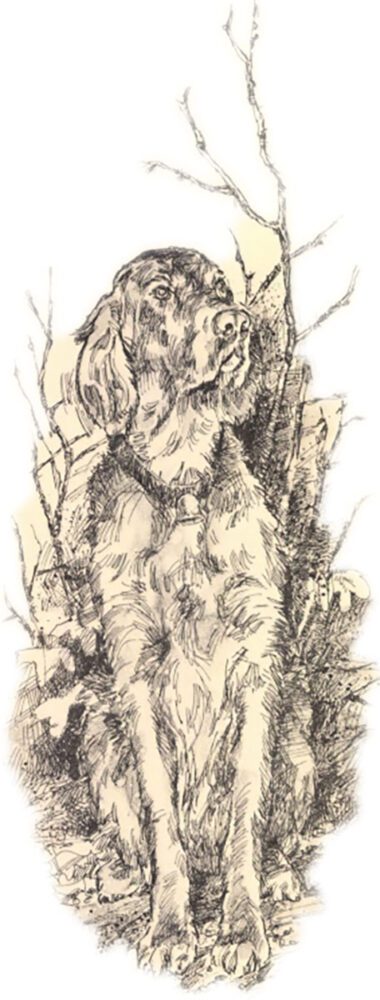 He had been so wrapped in his thoughts that he had not realized Shad’s bell had stopped. He hurried across the clearing, holding his gun ready. In a corner of the stone wall an ancient apple tree had littered the ground with fallen fruit, and beneath it Shad was standing motionless. The white fan of his tail was lifted a little and his backline was level, the neck craned forward, one foreleg cocked. His flanks were trembling with the nearness of grouse, and a thin skein of drool hung from his jowls. The dog did not move as he approached, but the brown eyes rolled back until their whites showed, looking for him. “Steady, boy,” he called. His throat was tight, the way it always got when Shad was on point, and he had to swallow hard. “Steady, I’m coming.”
He had been so wrapped in his thoughts that he had not realized Shad’s bell had stopped. He hurried across the clearing, holding his gun ready. In a corner of the stone wall an ancient apple tree had littered the ground with fallen fruit, and beneath it Shad was standing motionless. The white fan of his tail was lifted a little and his backline was level, the neck craned forward, one foreleg cocked. His flanks were trembling with the nearness of grouse, and a thin skein of drool hung from his jowls. The dog did not move as he approached, but the brown eyes rolled back until their whites showed, looking for him. “Steady, boy,” he called. His throat was tight, the way it always got when Shad was on point, and he had to swallow hard. “Steady, I’m coming.”
“I think his lips moved just now,” his sister’s voice said. He did not open his eyes, because he was waiting for the grouse to get up in front of Shad, but he knew Doc Towle was looking at him. “He’s sleeping,” Doc said after a moment. “Maybe you better get some sleep yourself, Mrs. Duncombe.” He heard Doc’s heavy footsteps cross the room. “Call me if there’s any change,” Doc said, and closed the door, and in the silence he could hear his sister’s chair creaking beside him, her silk dress rustling regularly as she breathed.
What was she doing here, he wondered. Why had she come all the way from California to see him? It was the first time they had seen each other since she had married and moved out West. She was his only relative, but they had never been very close; they had nothing in common, really. He heard from her now and then, but it was always the same letter: why didn’t he sell the old place, it was too big for him now that the folks had passed on, why didn’t he take a small apartment in town where he wouldn’t be alone? But he liked the big house, and he wasn’t alone, not with Shad. He had closed off all the other rooms and moved into the kitchen so everything would be handy. His sister didn’t approve of his bachelor ways, but it was very comfortable with his cot by the stove and Shad curled on the floor near him at night, whinnying and scratching the linoleum with his claws as he chased a bird in a dream. He wasn’t alone when he heard that.
He had never married. He had looked after the folks as long as they lived; maybe that was why. Shad was his family. They were always together — Shad was short for Shadow — and there was a closeness between them that he did not feel for anyone else, not his sister or Doc even. He and Shad used to talk without words, each knowing what the other was thinking, and they could always find one another in the woods. He still remembered the little things about him: the possessive thrust of his paw, the way he false-yawned when he was vexed, the setter stubbornness sometimes, the clownish grin when they were going hunting, the kind eyes. That was it; Shad was the kindest person he had ever known.
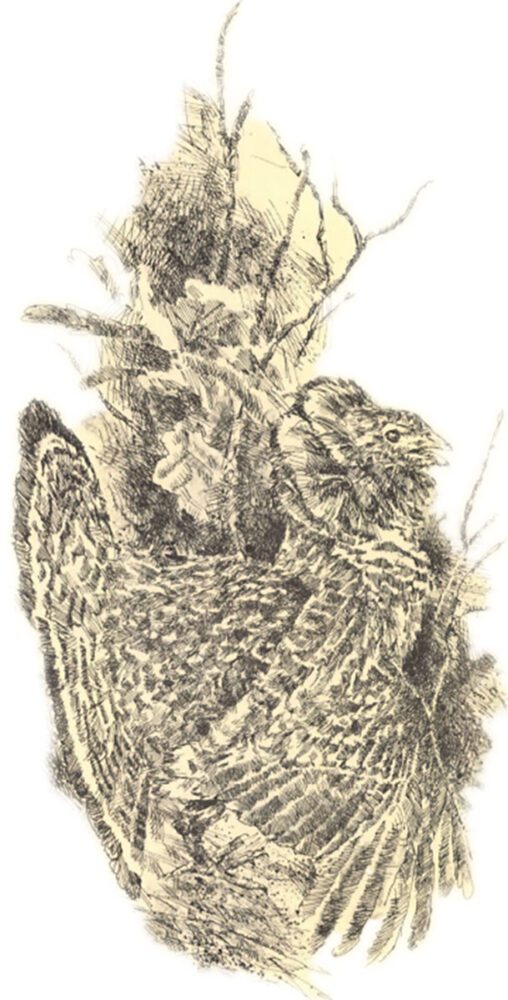 They had not hunted again after Tinkhamtown. The old dog had stumbled several times, walking back to the jeep, and he had to carry him in his arms the last hundred yards. It was hard to realize he was gone. He liked to think of him the way he was; it was like the barn, it was more real than the emptiness. Sometimes at night, lying awake with the pain in his legs, he would hear the scratch of claws on the linoleum, and he would turn on the light and the hospital room would be empty. But when he turned the light off he would hear the scratching again, and he would be content and drop off to sleep, or what passed for sleep in these days and nights that ran together without dusk or dawn.
They had not hunted again after Tinkhamtown. The old dog had stumbled several times, walking back to the jeep, and he had to carry him in his arms the last hundred yards. It was hard to realize he was gone. He liked to think of him the way he was; it was like the barn, it was more real than the emptiness. Sometimes at night, lying awake with the pain in his legs, he would hear the scratch of claws on the linoleum, and he would turn on the light and the hospital room would be empty. But when he turned the light off he would hear the scratching again, and he would be content and drop off to sleep, or what passed for sleep in these days and nights that ran together without dusk or dawn.
Once he asked Doc point blank if he would ever get well. Doc was giving him something for the pain, and he hesitated a moment and finished what he was doing and cleaned the needle and then looked at him and said: “I’m afraid not, Frank.” They had grown up in town together, and Doc knew him too well to lie. “I’m afraid there’s nothing to do.” Nothing to do but lie here and wait till it was over. “Tell me, Doc,” he whispered, for his voice wasn’t very strong, “what happens when it’s over?” And Doc fumbled with the catch of his black bag and closed it and said well he supposed you went on to someplace else called the Hereafter. But he shook his head; he always argued with Doc. “No, it isn’t someplace else,” he told him, “it’s someplace you’ve been where you want to be again.” Doc didn’t understand, and he couldn’t explain it any better. He knew what he meant, but the shot was taking effect and he was tired.
He was tired now, and his legs ached a little as he started down the hill, trying to find the stream. It was too dark under the trees to see the sketch he had drawn, and he could not tell direction by the moss on the north side of the trunks. The moss grew all around them, swelling them out of size, and huge blowdowns blocked his way. Their upended roots were black and misshapen, and now instead of excitement he felt a surge of panic. He floundered through a pile of slash, his legs throbbing with pain as the sharp points stabbed him, but he did not have the strength to get to the other side and he had to back out again and circle. He did not know where he was going. It was getting late, and he had lost the way.
There was no sound in the woods, nothing to guide him, nothing but his sister’s chair creaking and her breath catching now and then in a dry sob. She wanted him to turn back, and Doc wanted him to, they all wanted him to turn back. He thought of the big house; if he left it alone it would fall in with the winter snows and cottonwoods would grow in the cellar hole. And there were all the other doubts, but most of all there was the fear. He was afraid of the darkness, and being alone, and not knowing where he was going. It would be better to turn around and go back. He knew the way back.
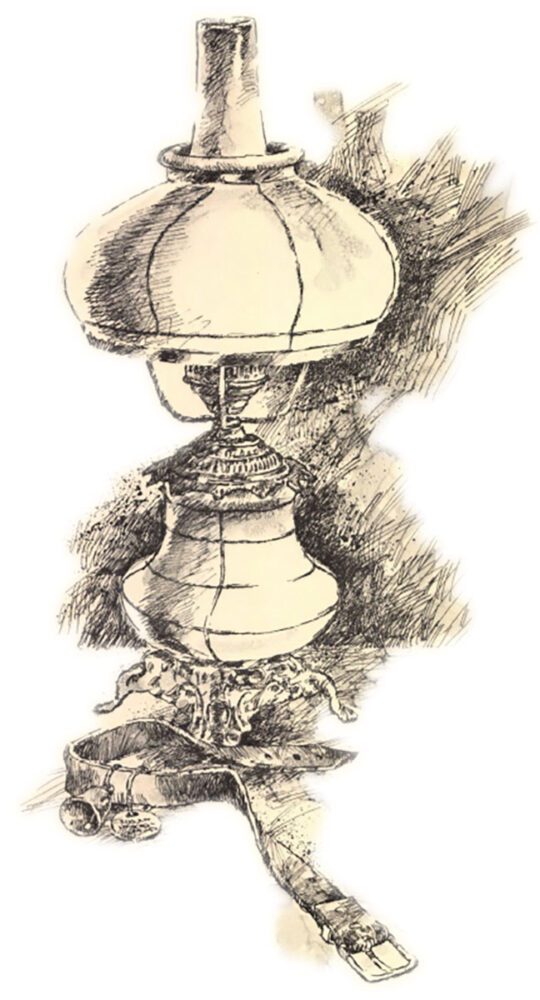 And then he heard it, echoing through the woods like peepers in the spring, the thin silvery tinkle of a sleighbell. He started running toward it, following the sound down the hill. His legs were strong again, and he hurdled the blowdowns, he leapt over fallen logs, he put one fingertip on a pile of slash and sailed over it like a grouse skimming. He was getting nearer and the sound filled his ears, louder than a thousand churchbells ringing, louder than all the choirs in the sky, as loud as the pounding of his heart. The fear was gone; he was not lost. He had the bell to guide him now.
And then he heard it, echoing through the woods like peepers in the spring, the thin silvery tinkle of a sleighbell. He started running toward it, following the sound down the hill. His legs were strong again, and he hurdled the blowdowns, he leapt over fallen logs, he put one fingertip on a pile of slash and sailed over it like a grouse skimming. He was getting nearer and the sound filled his ears, louder than a thousand churchbells ringing, louder than all the choirs in the sky, as loud as the pounding of his heart. The fear was gone; he was not lost. He had the bell to guide him now.
He came to the stream, and paused for a moment at the bridge. He wanted to tell them he was happy, if they only knew how happy he was, but when he opened his eyes he could not see them anymore. Everything else was bright, but the room was dark.
The bell had stopped, and he looked across the stream. The other side was bathed in sunshine, and he could see the road mounting steeply, and the clearing in the woods, and the apple tree in a corner of the stone wall. Shad was standing motionless beneath it, the white fan of his tail lifted, his neck craned forward and one foreleg cocked. The whites of his eyes showed as he looked back, waiting for him.
“Steady,” he called, “steady, boy.” He started across the bridge. “I’m coming.”
Editor’s Note: this story originally appeared in the 75th anniversary issue of Field and Stream in 1970 — and fondly republished in the 1982 issue of Sporting Classics.
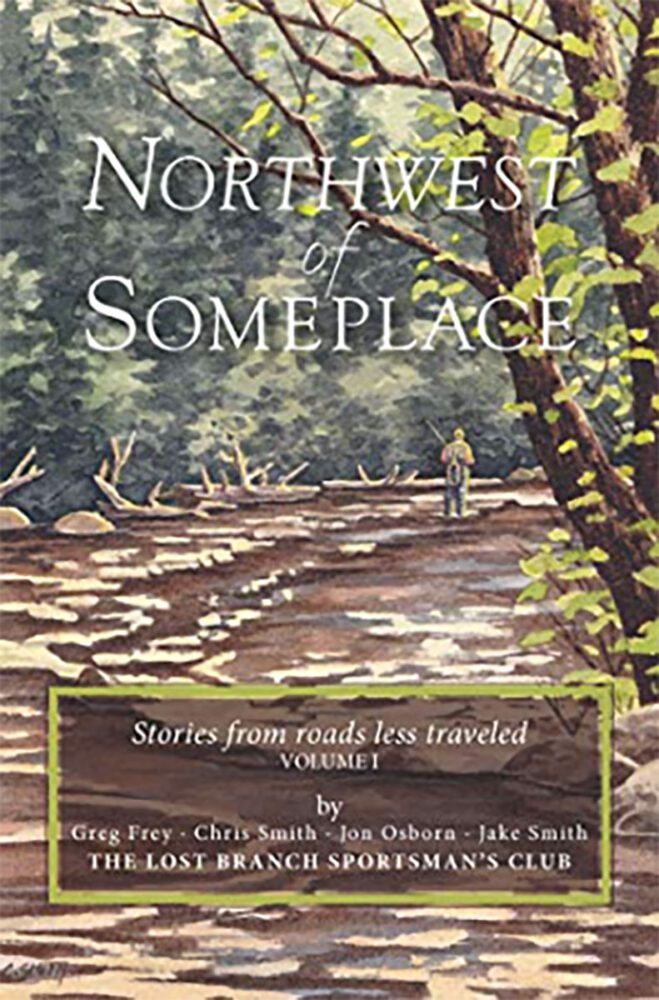 We like hunting and fishing stories, and this compilation is a throwback to the hunting and fishing storytellers of our youth, the youth of four, middle-aged dads and husbands, sons and brothers. We don’t get the amount of time in the outdoors we’d like — and that’s okay — but we try to savor it as much as possible when we do. Buy Now
We like hunting and fishing stories, and this compilation is a throwback to the hunting and fishing storytellers of our youth, the youth of four, middle-aged dads and husbands, sons and brothers. We don’t get the amount of time in the outdoors we’d like — and that’s okay — but we try to savor it as much as possible when we do. Buy Now

